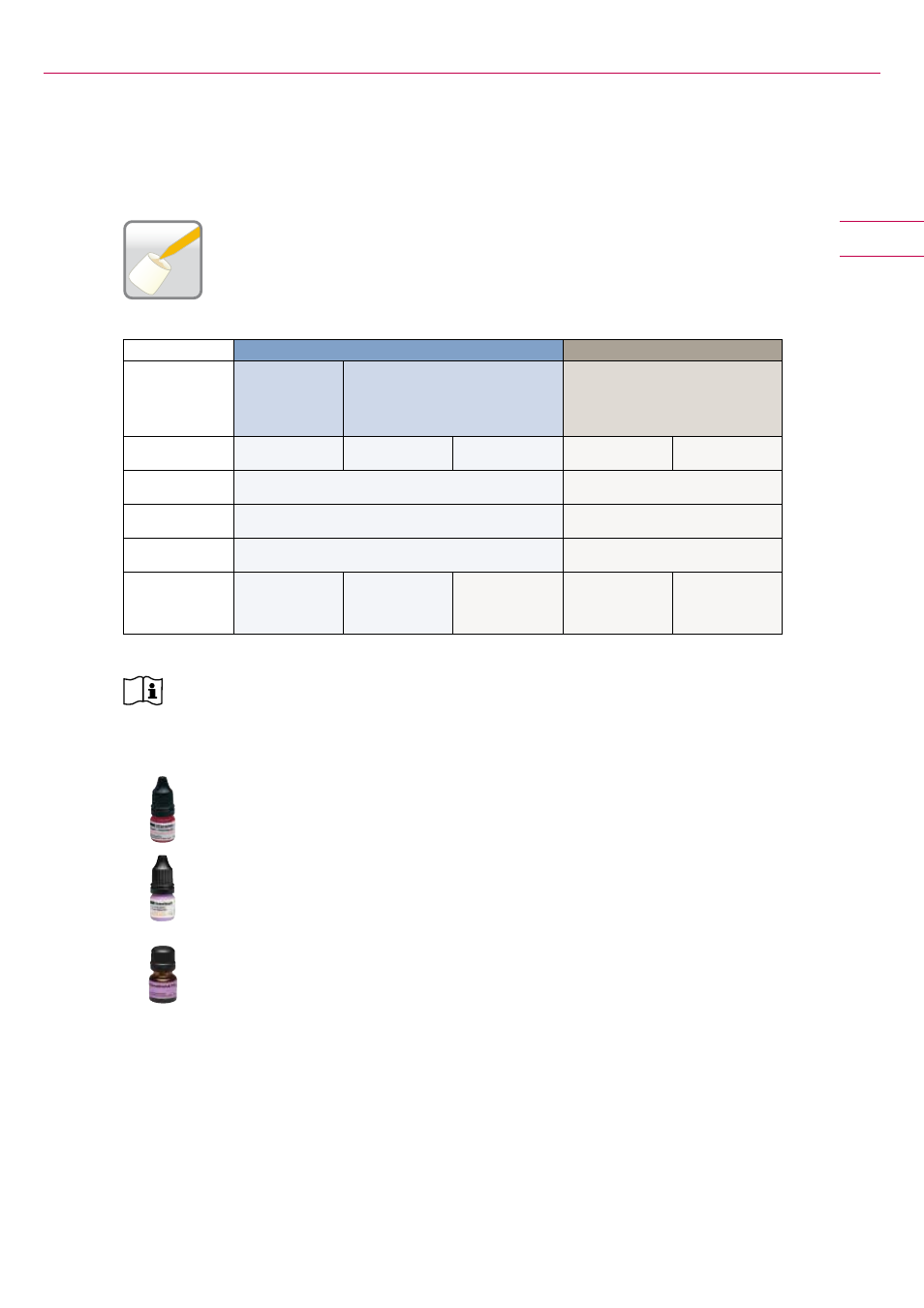Cementation – Ivoclar Vivadent IPS e.max Clinical Guide User Manual
Page 17

17
Practical procedure for restorations with IPS e.max |
Cementation
Cementation
Conditioning of the restoration
Material
Lithium disilicate LS
2
Zirconium oxide ZrO
2
Indication
Thin veneers,
veneers, occlusal
veneers,
inlays, onlays,
partial crowns
Crowns and 3-unit bridges
up to the second premolar
Crowns and bridges
Cementation
method
adhesive
adhesive
self-adhesive/
conventional
adhesive
self-adhesive/
conventional
Blasting
–
Cleaning with Al
2
O
3
at a maximum
pressure of 1 bar
Etching
5% hydrofluoric acid (e.g. IPS
®
Ceramic Etching Gel)
20 s
–
Conditioning
Monobond
®
Plus
60 s
1)
Monobond
®
Plus
60 s
1)
Cementation
system
Variolink
®
Veneer,
Variolink
®
II,
Multilink
®
Automix
Multilink
®
Automix
SpeedCEM
®
Vivaglass
®
CEM
Multilink
®
Automix
SpeedCEM
®
Vivaglass
®
CEM
1) With conventional cementation, conditioning is not necessary.
Please observe the corresponding Instructions for Use.
IPS
®
Ceramic Etching Gel – to generate retentive bonding surfaces on glass-ceramics
– It decisively enhances the bonding effect between the cementation material and the
ceramic.
– IPS Ceramic Etching Gel must not be applied intraorally!
Ivoclean – universal cleaning paste to remove proteins
– After the try-in of restorations with already etched surfaces
– Applied before conditioning
Monobond
®
Plus – universal single-component bonding agent
– Generating an adhesive bond (e.g. of the Variolink and Multilink line of products)
– For all indirect restorative materials (glass- and oxide-ceramics, metals, composites, fibre-
reinforced composites)
